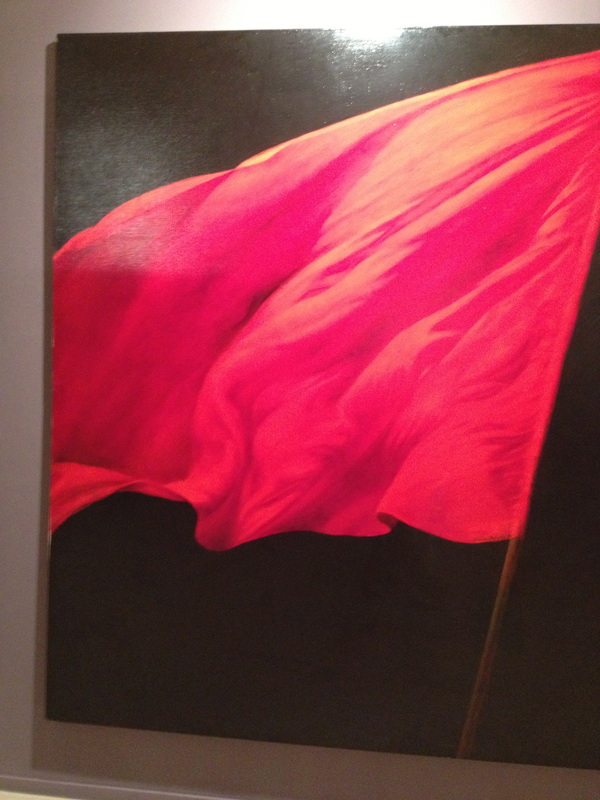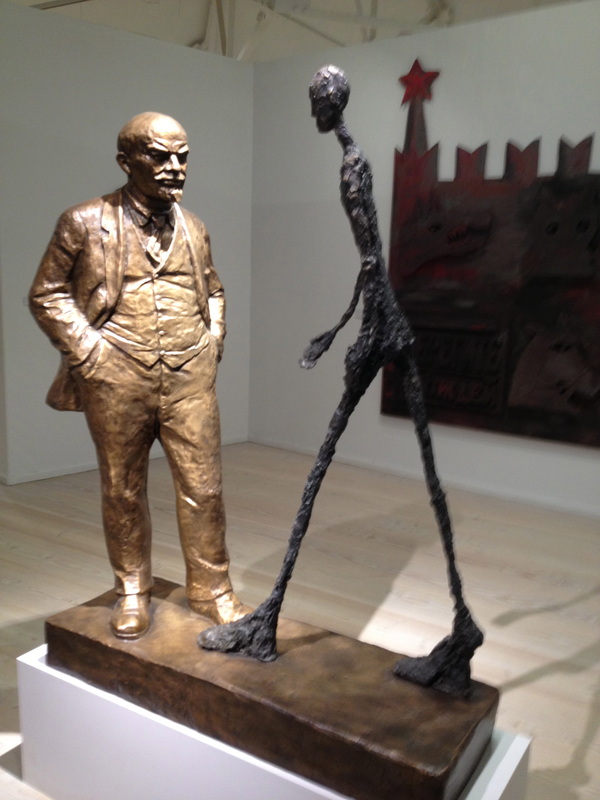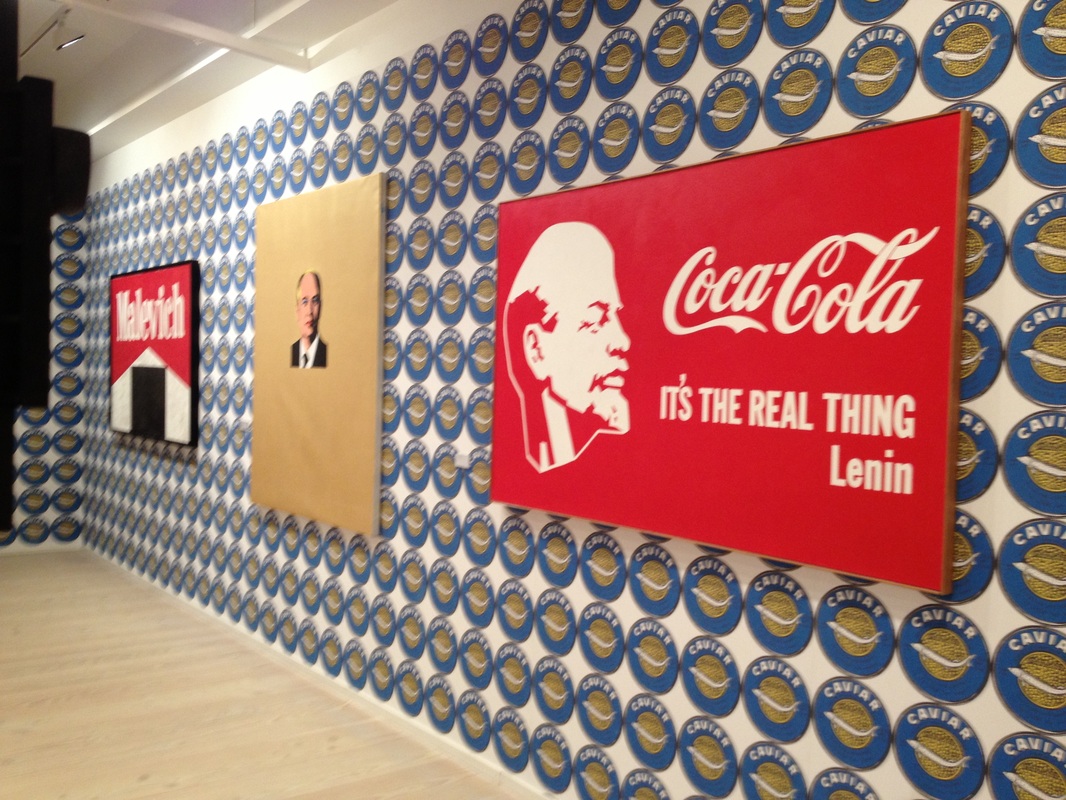What is interesting is the paucity of ideas from those who looked to mimic the west, and the accomplishment of those who wished to engage with Stalinist and socialist (they are different) realism in a modern, political and creative manner.
In a single piece, we see the clash of cultures, the struggle between what is permitted and what is forbidden, the synthesis of old and new left.
This is art. This, below, is an easy, cheap, advertising idea.
One understands why it might have been conceived, even executed. But one fails to understand why the image sits on a wall in a gallery in London.
It's glib and it's facile, and it is a matter of concern that this kind of western icon has been appropriated by the new Russia and its non-conformist artists.
It's a mystery why the curators of the Saatchi Gallery believe it worthy of our attention and their very expensive wall space, unless it is to celebrate the ways in which an ex-communist state can so easily be absorbed into our own business of art.
It is from one form of conforming to another.
We spent the morning at the Duke of York's HQ. That evening, we were at the Duke of York's Theatre to see The Judas Kiss, David Hare's play about Wilde.
It was always a good play. But now, in this revival, with Rupert Everett as Wilde and Freddie Fox as Bosie, it is something of a triumph.
In this script, and in this performance, one sees both sides of Wilde: a man who will not compromise his moral integrity, and a man who is hell-bent on self-destructive martyrdom.
In the second half, he is a shrunken figure, but a brave and determined figure, whose wit and intelligence remain despite knowledge of his imminent betrayal.
The theatre is old and cold; the noise of the underground reverberates regularly. But the play is profound and cathartic. I commend it to you.
Today's listening: Miss Sold from the Swaps. We all know that this is a great live band, but they can do it in the studio, too.








 RSS Feed
RSS Feed